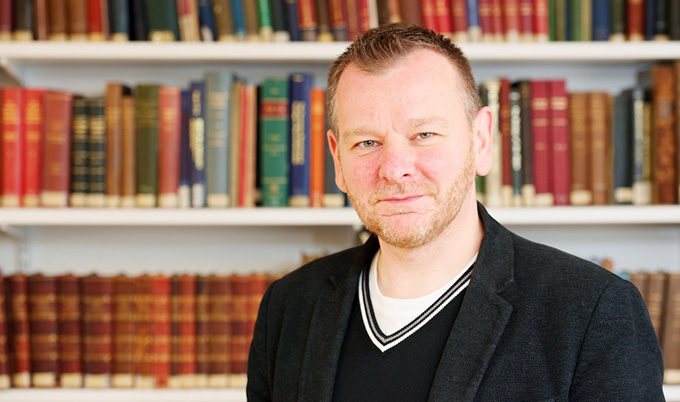Digital Participation in Our Plan for the Future
As a nation, the UK faces compounding issues that will affect how we live and work today and in the future.
New housing, social and connective infrastructure, the pursuit of carbon neutrality, and the adoption of transformative technologies in areas like energy and automation, are inherent demands of a developing population who strive to protect and raise the quality of life. Planning is charged with managing conflicting expectations of urban and rural change, that needs to become more responsive to these pressures.
It is an intrinsic and sacrosanct function of our democratic process that local people have an influential voice in decisions about change. In practice, while public input into planning has been around for over five decades, the form that it takes today is archaic; selective opportunities for the public to comment on proposals that are often perceived by industry to slow down development delivery; and usually in a form that tends to privilege those well versed in legal and policy language, wrapped into a process that dissuades people from actively shaping their own places. The whole consultation process tends to be reactive, and therefore generates overly-negative comments from communities.
Planning has been slow to seize the opportunities that current and emerging technology may offer.
For example, more data-driven decision making and tapping the wealth of advanced digital and creative technology that is already being used to foster smarter cities, such as cutting building emissions with intelligent energy management systems. With Arc-level ambition and the industry ready for change under the Planning reforms, as well as the UK’s strong performance in PropTech, we are facing a golden opportunity to transform how we work with communities to design places and solutions for the future. The critical issues are whether those digital planning opportunities are accessible and visible to members of the public, and meaningful to all.
Redefining our success metrics with a digital-first approach
Making strategic spatial planning the most accessible, democratic, and data-enabled it's ever been
The Government worked with The Future Fox to use our PlaceBuilder community engagement platform, to include the Oxford-Cambridge Arc communities in the earliest stage of the project. Embarking on a first-of-its-kind digital engagement at this scale, communities across the region were able to have their say on what their vision was for the future of their area to 2050 and beyond.
Community involvement in planning had never been done like this before; for the first time, guided by the goal of inclusive digital planning, we were able to engage communities at scale for a strategic project, through digital means, and in an accessible way. The consultation purpose was to shape the Spatial Framework, which would govern decision-making by the wide array of actors for years to come and embed community preference in those decisions.
Thousands of people engaged in the consultation and provided their views. 2,933 people responded on our PlaceBuilder platform, providing a total of over 82,500 responses to different questions about the environment, economy, place-making, connectivity and infrastructure, and the delivery approach of the Arc. We achieved representation from across the region and age groups, including younger age groups. Supported by a careful social ad strategy, we heard from all demographics and 42% of respondents had never responded to a planning consultation before. These are exceptional results for strategic spatial planning. Through our statistical, spatial and algorithmic analyses, we now have a rich understanding of community preferences and concerns that can act as a guide to development in the region, to embed the community voice in strategic planning decisions.
What next for planning across the Arc?
Since the consultation was run, the advancement of the Levelling Up agenda has led to a reduced role for Government. This will be much to the relief of many in the community; the consultation responses showed significant opposition to further growth of the Southeast without the sincere consideration of alternatives (which is now evolving). However in spite of these governance changes, we don’t expect growth to be dropped in the short term; after all EWR is going ahead, significant investment has already been made, and South East England is still an attractive, dynamic market without the additional Government support.
Actioning communities’ preferences to 2050
Essentially, this can be seen as a ‘digital twin’ for community preference that if made open, has the potential to help communities and developers to forge their own ideas for change, or identify the most suitable places to protect. Combined with other data sources, there are opportunities to meet very local needs. For example, supporting schools neighbouring the East-West Rail link, so they benefit from Arc’s connected enterprises; or addressing health and social care issues where these are most prevalent, by integrating plans for tech enabled dementia-friendly housing or assisted living developments.
More widely, many people, including those opposing targeted growth in the region, feel that some of their biggest concerns such as climate change and growth need to be addressed, but aren’t. Mainstream discussion-based platforms like Facebook or Twitter, which are perhaps the most used outlets for this discussion, are shown to perpetuate pre-existing divisions in community opinions and have little contribution to advancing the debate. Ultimately, communities can and will exercise their ballot box power, but for a more coherent strategy to deliver in the Arc, it is essential that growth, its local focal points, and its impacts, positive, neutral or negative, on the diverse communities in the region, are discussed at a local level, and digitally.
Through ongoing meaningful, constructive engagement that leads to data-enabled decisions, we can embed the community voice, and accelerate the delivery of shared and targeted benefits to support the huge potential of the region.
Get in touch

Professor Mark Tewdwr-Jones
Bartlett Professor of Cities and Regions at the Centre for Advanced Spatial Analysis


